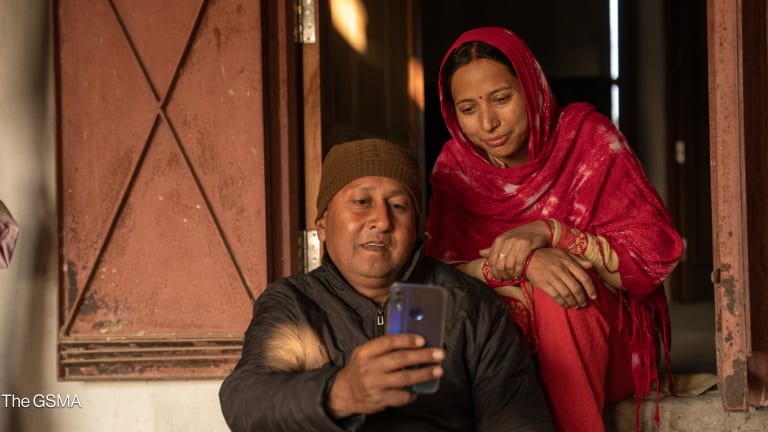
Phone connectivity and internet access should be fundamental rights for all — but today, despite progress, they remain privileges.
Girls, women, and marginalized groups are least likely to have access to technology. This was already a dire disadvantage, and now, as the COVID-19 pandemic has moved so many aspects of daily life online, this lack of connectivity has become even more alarming.
Opinion: How to tackle least developed countries' gender gaps in tech use and data
How many female business owners in LDCs are using social media? How many have access to the internet? We need more data. This op-ed shares ideas to ensure women are not left further behind amid the tech revolution.
The internet has evolved from being a luxury asset to a key utility and public good, yet 3.6 billion people remain offline. Digital disparities reflect the inequality and discrimination that exist in wider society, with access lowest for the least privileged.
In low- and middle-income countries, 433 million women are unconnected and 165 million fewer women own a mobile phone compared with men. Boys are 1.5 times more likely to own a phone than girls in many countries, and among those who do own phones, boys are more likely than girls to own smartphones. The global internet user gap is 17%, and the digital gender gap exists in all regions of the world — and continues to grow. No society is immune.
We know from Ebola and other epidemics of the past that health crises magnify existing inequalities such as these.
Online commerce and mobile money is now a growing phenomenon, with over 1 billion registered accounts and close to $2 billion in daily transactions. Digital products are reaching the screens of increasing numbers of low-income users, including young people. Yet 1.7 billion people, more than half of whom are women, remain financially excluded from the digital economy. This can mean that essential cash transfer programs do not reach women in times of crisis.
Lockdown restrictions have left millions of girls, women, and people of all genders vulnerable to a growing shadow pandemic of violence — including cyberviolence and exploitative grooming of children — and with limited access to help. For these people, technology can be a lifesaving line of defense, whether via instant messaging services with a geolocation function, free calls to domestic abuse hotlines, or discreet apps that provide disguised support and information to survivors in case of surveillance by abusers.
But for those without access to a phone, these services might as well not exist. We must ensure that solutions do not only focus on high-end tech, further marginalizing girls and women without those resources. A two-pronged approach is needed: to assure full connectivity for everyone and to cater to those who are not online.
Internet access should be a human right, and we must be radical and ambitious in our thinking, striving for universal connectivity. Since most people access the internet through mobile devices — in low-income countries, especially — mobile network operators and internet service providers play a central role in enabling access.
Governments and civil society can demand free or cheap access to the internet for those who cannot afford it, whether in the form of lower data-bundle costs, the waiving of caps and additional fees on data usage, or zero-rating important websites, such as those with key educational content. Service providers, too, need governments to provide a supportive regulatory environment to help maintain connectivity as demand surges.
And assuring connectivity is only the first of many steps. To achieve the Sustainable Development Goals and leave no one behind, we need digital literacy that does not discriminate. Giving girls and women access to digital resources, as well as the knowledge, training, and confidence to design and use them, will ensure that they are not further marginalized in an increasingly digital world.
COVID-19 has been the most disruptive global force in a generation. And where there is disruption, there is the potential to rebuild, reimagine, and create a radically better world.
We stand at a crossroads: We can allow the coronavirus crisis to reinforce the worst impacts of the digital gender divide; or we can use the crisis to accelerate change, expand horizons, and get millions of girls and women online. The time to act is now.









